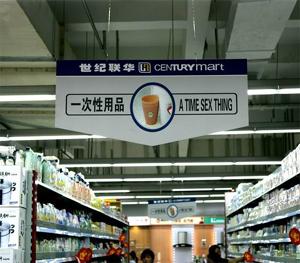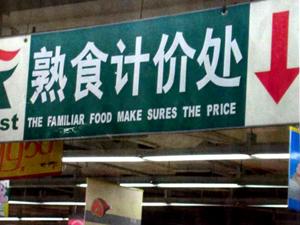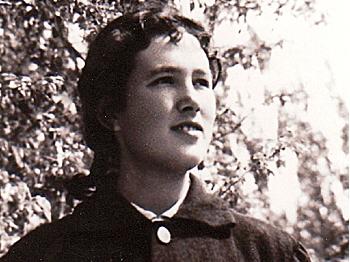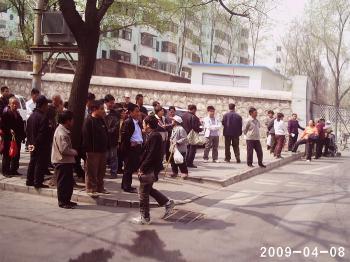A sign at a train station in China reads “Fire Car Station,” while another sign at the pharmacy of a hospital in Beijing reads “Western Pharmacy.” What’s more, a sign at the cashier of the cooked food section in a supermarket reads “The Familiar Food Make Sures the Prices.”
It is not uncommon to see such “Chinglish” on various signs at China’s airports, highways and public facilities. When seeing it on signs at shopping centers or in small shops, tourists are often bewildered by the meaning of the signs or burst into laughter when they recognize the true meaning of the phrases.
In 2002, the Beijing Bureau of Tourism set up a hotline for visitors and residents to report examples of bad English in public places. The hotline, however, has met with little success. In the run-up to the 2008 Beijing Olympics, Beijing municipal authorities recently launched a new drive to eliminate bad English displayed on public signs.





